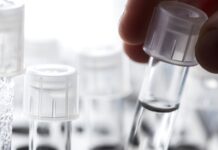Is Berberine Bad For Kidneys? – Berberine is a natural alkaloid found in a number of plants such as barberry, goldenseal, and Oregon grape. Extensive research in recent years has demonstrated berberine’s wide range of pharmacological activities and health benefits. This article examines the potential protective effects of berberine against chronic kidney disease progression and the mechanisms involved.
Chronic kidney disease (CKD) is a worldwide public health problem, characterized by progressive loss of kidney function. CKD can lead to end-stage renal disease, which requires dialysis or kidney transplant. Oxidative stress and inflammation play key roles in the pathogenesis and progression of CKD. Therapies that can suppress oxidative stress and inflammation may help slow CKD progression.
Recent animal studies indicate that the herbal supplement berberine may protect against kidney damage in CKD. Berberine treatment ameliorated kidney dysfunction and damage in rodent models of diabetic nephropathy and kidney fibrosis. Berberine’s renoprotective effects appear to be mediated through antioxidant, anti-inflammatory, and lipid-lowering actions.
This article reviews the current scientific research on berberine and chronic kidney disease. We examine berberine’s mechanisms of action and its potential to be a novel, natural treatment for preventing CKD progression.
Chronic Kidney Disease Epidemic and Treatment Challenges
Chronic kidney disease (CKD) has become a worldwide public health epidemic, affecting 10-13% of the global population. In the United States, over 1 in 7 adults have CKD, totaling 37 million Americans. Diabetes and hypertension are the leading causes of CKD.
CKD is characterized by gradual loss of kidney function over months to years. As CKD worsens, dangerous levels of waste and fluid can build up, leading to kidney failure. CKD significantly increases risks of cardiovascular disease and premature death if left untreated. Unfortunately, current treatments for CKD are limited to controlling diabetes and hypertension but cannot effectively slow disease progression.
Finding novel therapies to prevent or slow CKD progression would significantly benefit global public health. Natural plant-derived compounds with antioxidant, anti-inflammatory, and renoprotective effects may hold promise as CKD therapeutics. One such compound is berberine.
Berberine Overview: Sources, Uses, Bioavailability
Berberine is an isoquinoline alkaloid found in various plants including barberry, goldenseal, Oregon grape, and tree turmeric. In traditional Chinese and Ayurvedic medicine, berberine root extracts have been used medicinally for centuries.
Modern clinical research over the past decade has confirmed many of berberine’s health and medical benefits. Berberine exhibits a range of pharmacological activities, including antimicrobial, anti-inflammatory, antioxidant, lipid-lowering, antidiabetic, gut microbiome-modulating, and immune-enhancing effects.
However, berberine has low bioavailability when taken orally. Advances in drug delivery technology like nanoparticle encapsulation has improved berberine’s absorption and bioavailability. Enhanced berberine formulations demonstrate significant therapeutic effects at lower doses compared to regular berberine.
Berberine’s Beneficial Mechanisms of Action
Extensive pharmacological research has uncovered berberine’s wide range of molecular and cellular mechanisms of action. Berberine exerts direct and indirect antioxidant effects to reduce oxidative stress.
Berberine increases activity of the antioxidant enzymes superoxide dismutase, catalase, and glutathione peroxidase. Berberine scavenges free radicals and enhances mitochondrial function. It inhibits pro-oxidant enzymes like nicotinamide adenine dinucleotide phosphate (NADPH) oxidase.
Powerful anti-inflammatory effects are another key mechanism behind berberine’s health benefits. Berberine downregulates major pro-inflammatory cytokines like tumor necrosis factor-alpha (TNF-α), interleukin-6 (IL-6), interleukin-1beta (IL-1β). Berberine suppresses pro-inflammatory nuclear factor kappa-light-chain-enhancer of activated B cells (NF-kB) signaling.
Metabolic benefits like improving insulin sensitivity, lipid metabolism, and gut microbiome appear central to berberine’s therapeutic effects. Berberine activates adenosine monophosphate-activated protein kinase (AMPK), a master regulator of cellular energy homeostasis.

Berberine Reduces Oxidative Stress and Inflammation
Oxidative stress results from excess production of reactive oxygen species (ROS) that overwhelms and damages cells. Chronic inflammation drives progression of CKD as inflammatory immune cells induce kidney injury.
Berberine treatment for 3-4 months markedly reduced oxidative stress markers and increased antioxidant enzyme activity in rodent models of diabetic nephropathy. Berberine lowered kidney levels of malondialdehyde (marker of oxidative damage) while raising superoxide dismutase levels.
Berberine also suppressed overexpression of NADPH oxidases NOX2 and NOX4 that generate ROS and mediate kidney fibrosis. This antioxidant effect of berberine likely involves AMPK pathway activation.
Regarding inflammation, berberine prevented rises in inflammatory cytokines like IL-6 and TNF-α in the diabetic kidney. Berberine inhibited NF-kB activation and nuclear translocation. It decreased infiltration of pro-inflammatory immune cells. This helps explain berberine’s anti-fibrotic kidney effects.
Berberine Improves Dyslipidemia and Metabolic Function
Metabolic syndrome underlies many cardiorenal diseases. Oxidative stress, inflammation, insulin resistance, obesity, and dyslipidemia promote CKD progression. Berberine has metabolic benefits that help protect kidneys.
In diabetic mice and rats with kidney disease, berberine lowered fasting blood glucose, insulin, hemoglobin A1C (HbA1c), and insulin resistance. Berberine activated AMPK, which improves insulin sensitivity and glucose metabolism. Berberine’s antidiabetic effect protects kidneys by glycemic control.
Dyslipidemia with high cholesterol, triglycerides and low HDL further drive CKD progression. Berberine significantly improved lipid profiles in animal CKD models. Berberine reduces cholesterol synthesis in the liver by inhibiting proprotein convertase subtilisin/kexin type 9 (PCSK9).
Berberine also inhibits mitochondrial function in fat cells, preventing fatty acid synthesis. This comprehensive lipid-lowering effect of berberine benefits cardiorenal health.
Berberine Suppresses Renal Fibrosis and Extracellular Matrix Accumulation
A hallmark of advancing CKD is progressive renal fibrosis, or hardening/scarring of kidney tissue. Fibrosis disrupts kidney architecture and causes dysfunction. Berberine suppresses multiple pathological pathways that promote extracellular matrix accumulation and fibrosis.
The transforming growth factor-beta (TGF-β1) pathway is central driver of fibrosis. Berberine reduces TGF-β1 expression and blocks its downstream signaling. This includes suppressing Smad proteins and connective tissue growth factor (CTGF), which stimulate collagen production.
Berberine also inhibits epithelial-mesenchymal transition (EMT) of kidney cells, a process whereby epithelial cells transform into activated fibroblasts that secrete fibrosis-promoting proteins. Overall, berberine’s multi-target anti-fibrotic mechanisms help preserve kidney structure and function.

Berberine Protects Against Diabetic Nephropathy in Rodents
Diabetic nephropathy is the leading cause of CKD. Hyperglycemia damages kidneys through inflammation and accumulation of extracellular matrix proteins. Berberine given preventatively protected against diabetic nephropathy development in rodents.
In streptozotocin-induced diabetic rats, berberine completely prevented rises in urine protein excretion. Berberine maintained normal kidney histology and suppressed fibrosis and glomerulosclerosis. Diabetic rodents treated with berberine had 50% lower urine albumin-to-creatinine ratio.
Berberine improved kidney function by lowering serum creatinine and blood urea nitrogen (BUN). It also reduced kidney weight-to-body weight ratios elevated in diabetic nephropathy. Through antioxidant, anti-inflammatory, and antifibrotic effects, berberine protects kidneys against diabetes-induced damage.
Summary of Berberine’s Renoprotective Mechanisms of Action
| Mechanism | Effects |
|---|---|
| Antioxidant | Increases antioxidant enzymes, reduces oxidative damage |
| Anti-inflammatory | Lowers pro-inflammatory cytokines like TNF-α, IL-6, IL-1β; inhibits NF-kB signaling |
| Lipid-lowering | Reduces cholesterol synthesis; inhibits fatty acid synthesis |
| Anti-fibrotic | Inhibits TGF-β1 signaling, EMT transition of kidney cells |
| Antidiabetic | Activates AMPK; improves insulin sensitivity and glucose metabolism |
Berberine Ameliorates Kidney Injury and Dysfunction in Rodents
Berberine also demonstrates reno-protective effects in non-diabetic rodent models of acute kidney injury and chronic kidney fibrosis. This indicates berberine’s therapeutic potential for general nephroprotection beyond just diabetic contexts.
In rats with acute kidney injury induced by gentamicin antibiotics, berberine markedly improved kidney function. Serum creatinine and BUN were 50% lower in berberine-treated rats, and kidney histology showed less tissue damage. Berberine also ameliorated chronic renal fibrosis following unilateral ureteral obstruction in mice.
Overall, berberine attenuated kidney dysfunction, oxidative stress, inflammation, and fibrosis across rodent CKD models. This establishes berberine as a promising natural compound for slowing CKD progression via multiple protective mechanisms.
Berberine Dosage and Safety Considerations
For medicinal use in humans, regular berberine hydrochloride dose is 900-1500 mg per day, split into 3 doses and taken before meals. For enhanced bioavailable berberine formulas, doses of 200-500 mg daily in divided doses appear effective.
Berberine is generally well tolerated, with gastrointestinal side effects like diarrhea, constipation, flatulence and abdominal pain occurring occasionally. Berberine is very safe at usual doses, with animal studies finding no adverse effects even at extremely high doses. However, a few precautions exist.
Since berberine lowers blood glucose, diabetics should monitor glucose closely and adjust medications if needed. Berberine may interact with medications metabolized by CYP3A4 liver enzymes. Individuals on medications should consult their doctor before taking berberine supplements.
Overall, berberine has an excellent safety profile, especially when taken short-term. More research is still needed to establish long-term safety. But current evidence indicates berberine has great potential as a therapeutic and preventative natural treatment for CKD.
| Formulation | Recommended Dosage |
|---|---|
| Regular berberine hydrochloride | 900-1500 mg daily, split into 3 doses taken before meals |
| Enhanced bioavailability berberine | 200-500 mg daily, divided doses |
Conclusion: Berberine a Promising Natural CKD Therapy
In summary, the natural plant alkaloid berberine shows considerable promise as a therapeutic agent for preventing chronic kidney disease progression. Through diverse mechanisms like antioxidant, anti-inflammatory, antifibrotic, antidiabetic, and lipid-lowering effects, berberine protects kidney function and structure in animal models.
While more clinical research is still needed, current science supports berberine’s potential as an adjunctive natural therapy for CKD. Given the rising epidemic of cardiorenal diseases and lack of effective CKD treatments, berberine warrants further investigation for combating kidney deterioration and damage in at-risk patient groups.
Consumption of berberine supplements could offer a relatively safe, affordable adjunctive therapy for managing CKD. However, patients should consult doctors before using berberine, especially if taking other medications or if diabetic. Overall, berberine provides new hope for protecting kidneys and improving long-term health outcomes.





